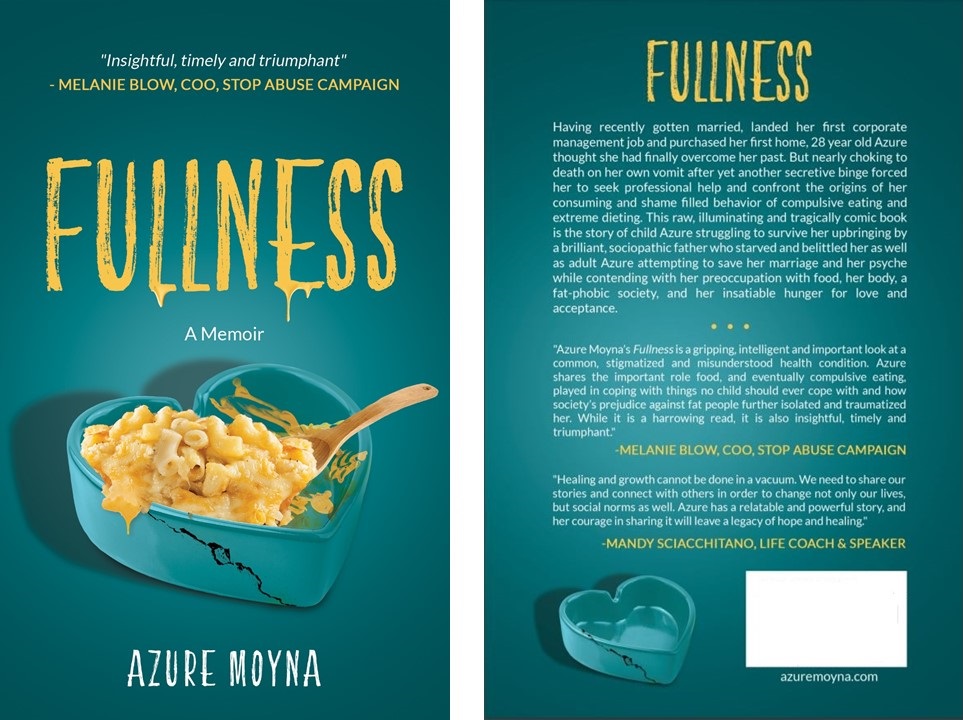Food and Body Abuse
Appearance is very important in American culture. Cosmetics make up a nearly $50 billion industry, weight loss a $72 billion industry. Approximately 91% of women report being unhappy with their bodies, which results in dieting. [1]. 30 million of those women, according to the National Eating Disorder Association, have full-fledged eating disorders, and many, many more than that have disordered eating behavior.
We all experience a great deal of pressure to look a certain way in our society. And that is damaging in and of itself. What happens, then, when you add narcissism on top of this? Vanity is one of the hallmark traits of those with full-blown Narcissistic Personality Disorder. Further, it is not uncommon for narcissistic family structures to be described as being obsessed with physical appearance and the family “looking perfect” problem-free to outsiders. And these “perfection urges” can cause narcissistic parents to abuse and neglect their children under the cloak of doing it for the child’s health.
In my memoir, Fullness, I outline how the Adverse Childhood Experience (ACE) I call “food abuse” looked in my family and how it affected me in adulthood. A couple of excerpts:
Aged seven: “[My naturally thin brother] hardly ever told on me [for sneaking food]. I knew he felt sorry for me, that I was never allowed to have anything he was, that everything I ate was monitored, counted, logged, trended and scrutinized.”
Aged nine: “I remember holding my breath as the scale’s finger wagged back and forth, already scolding me and how I leaned back a little thinking it would register lighter. When it arrived at the number, still too much, of course, I heard the click-click followed by the circling sound of [my father’s] mechanical pencil on the key lime graph paper he held. When I tried to slink out of the bathroom he bellowed ‘Commere!’ as he tilted the paper so I would see as he moved his pencil up and to the right to connect yesterday’s dot to today’s with angered purpose. ‘I’ve never met a kid who could just stick their finger into butter and eat it.’ He made sure to look at me right in the eye. ‘It’s enough to make a person vomit.’”
Aged nine: “My likes and dislikes did not factor in at all for lunch… or dinner or any other time for that matter. Only what I was allowed to have mattered. When I wasn’t given this [dry, half a] sandwich for lunch, I was encouraged not to eat at all. Maybe then I would lose weight, my mom would tell me.”
Aged Twelve: “Thinness, to me, was like the American Dream—if I worked hard enough, it was attainable and I was going to work my a** off this summer, literally.”
Adult: “To me, a thin life was an ordered life, so when the barometer went up, so did the chaos. Unlike people probably assume, I wasn’t ‘letting myself go.’ I didn’t declare ‘screw dieting!’ It was like holding onto the jungle gym bars with sweaty hands that start to slip. The more I tried to grasp tightly, the more I went downhill.”
If you see your upbringing and it’s affects in any of these statements, what you experienced was what I call “food abuse.” In fact, the first need in the Max-Neef Model of human needs is subsistence, where food is the first listed item. When a parent has food available and chooses to withhold it from their child and instead sends them to school or bed hungry, it is neglect. When a parent chronically gives one child something to eat in front of the other child who is not allowed to have it, it is cruel and abusive. When a parent prioritizes the desire for the child to look a certain way over the minimum physical needs of the child, it is abuse and neglect.
What parents who diet their children (and especially narcissistic parents) are unconscious of is the truth that when you make food and weight a “thing,” it becomes a “thing.” And that “thing” can very quickly and easily morph into much more serious conditions and can last well into adulthood. Battling the appearance pressures of society is difficult enough, but parents teaching their children that love is conditional based on having a thin appearance all but guarantees that the child will develop disordered eating.
Dieting children creates lifelong issues:
– with food: growing up this way can lead to a life-long pattern of oscillating between bingeing and extreme dieting, over exercise or other methods of purging.
– with body: Extremely poor body image results from dieting as a child. Moreover, the source of esteem becomes external, so instead of experiencing self-esteem, these children and grown children experience external-esteem, where they view how others think of them as being all that matters and the way they see themselves as being totally irrelevant. Further, children who grow up this way learn to ignore their bodies’ signals and tend to experience hunger and fullness in extremes: either ravenously hungry or busting at the seams and fail to recognize the gradations in between. Also, it is not uncommon for children who grow up this way to feel a chronic emptiness inside them that is easily mistaken as physical hunger.
– with mental health: Depression and anxiety are extremely common among those with disordered eating behavior.
– In relationships: Children and grown children who have been highly controlled can associate controlling behavior with intimacy, or can really rebel against any subtle control (like taking direction from a boss). In either case, this can present issues for the child and grown child in trying to have healthy relationships and livelihood.
If you are suffering from any of these and identified with any of the excerpts from Fullness there is hope. It is recommended that you supplement any therapeutic work with a coach certified In Eating Psychology.
Wishing you the very best in your recovery from your abusive upbringing.
[1] Palmer, Mario. “5 Facts About Body Image.” Amplify. Accessed February 24, 2014, http://amplifyyourvoice.org/u/marioapalmer/2013/05/21/byob-be-your-own-beautiful
Do you know your score?
Discover your ACE score and unlock a new understanding of your life. Take the test and gain insights into how your early experiences shape your well-being. Don't let your past define you – empower yourself with knowledge.

Azure Moyna
Writer and Coach
Azure Moyna is a writer and coach about issues relating to food, body, mental illness, familial dysfunction, societal treatment of overweight people, and the healing journey. Azure is the author of her memoir, Fullness.

